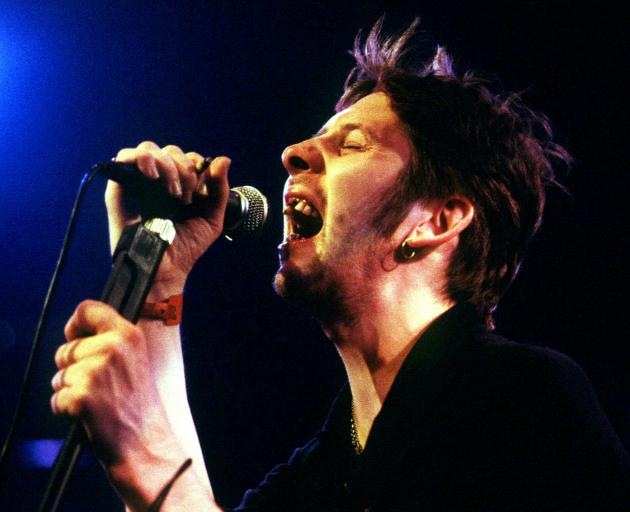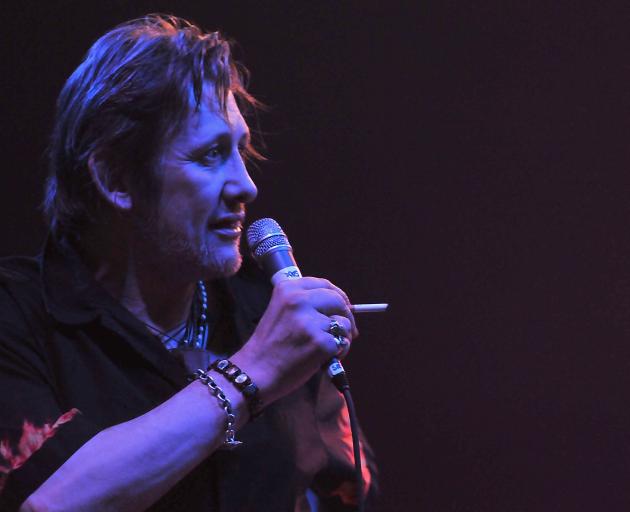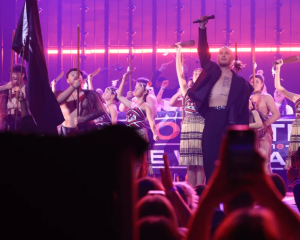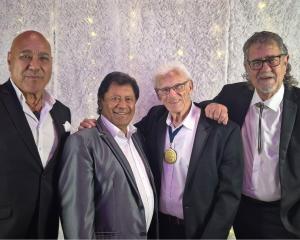
In Fairytale of New York, Shane MacGowan sang "I could have been someone", only for Kirsty MacColl to cuttingly reply "well, so could anyone".
Shane Patrick Lysaght MacGowan was most assuredly someone, but lingering questions will always remain about what the boozy, rabble-rousing singer and chief songwriter of The Pogues could have achieved had his demons and addictions not quelled his prodigious creative powers.
The Pogues melded Irish folk and rock’n’roll into a unique, intoxicating blend, though MacGowan became as famous for his sozzled, slurred performances as for his powerful songwriting.
His ragged persona disguised his fierce intellect and forensic knowledge of Irish culture, history and folklore, as revealed in A Drink with Shane MacGowan, a 2001 autobiographical book MacGowan wrote with future wife Victoria Mary Clarke
Born on Christmas Day 1957 in England, to Irish parents, MacGowan spent his early years in rural Ireland before the family moved back to London.
Ireland remained the lifelong centre of his imagination and his yearning.
He grew up steeped in Irish music absorbed from family and neighbours, along with the sounds of rock, Motown, reggae and jazz.
After winning a scholarship to the prestigious Westminster School in London, MacGowan struggled to fit in, was expelled two years later for drug use and started hanging out in London bars with other musicians.
At 17, his alcohol and drug use helped trigger a mental breakdown and he was kept in a psychiatric hospital for six months.
MacGowan embraced the punk scene that exploded in Britain in the mid-1970s.
He joined a band called the Nipple Erectors, performing under the name Shane O’Hooligan, before forming The Pogues alongside musicians including Jem Finer and Spider Stacey.
"It never occurred to me that you could play Irish music to a rock audience," MacGowan recalled in A Drink with Shane MacGowan.
"Then it finally clicked — start a London Irish band playing Irish music with a rock and roll beat. The original idea was just to rock up old ones but then I started writing."
The band’s first album, Red Roses for Me, was released in 1984 and featured raucous versions of Irish folk songs alongside originals including Boys from the County Hell, Dark Streets of London and Streams of Whisky.

MacGowan wrote many of the songs on the next two albums, Rum, Sodomy and the Lash (1985) and If I Should Fall from Grace with God (1988), ranging from rollicking rousers like the latter album’s title track to ballads like A Pair of Brown Eyes and The Broad Majestic Shannon.
The band also released a 1986 EP, Poguetry in Motion, which contained two of MacGowan’s finest songs, A Rainy Night in Soho and The Body of an American.
"I wanted to make pure music that could be from any time, to make time irrelevant, to make generations and decades irrelevant," he recalled in his memoir.
In 1987, The Pogues released what for many will be their greatest hit, Fairytale of New York, in which MacGowan and MacColl portray disenchanted spouses on a Christmas Eve when the protagonist once again ends up in the drunk tank.
The song has reached the UK top 20 on 20 separate occasions since its original release in 1987, including every year at Christmas since 2005.
The Pogues were briefly on top of the world, with sold-out tours and appearances on United States television, but the band’s output and appearances grew more erratic, due in part to MacGowan’s struggles with alcohol and drugs.
After a series of hallucinogenic benders, including one night in New Zealand when he stripped naked and painted himself blue, The Pogues fired MacGowan during a 1991 tour of Japan after they became fed up with a string of no-shows, including one night opening for Dylan.
The band briefly replaced MacGowan with Clash frontman Joe Strummer before breaking up.
MacGowan performed with a new band, Shane MacGowan and The Popes, with whom he put out two albums, The Snake in 1995 and The Crock Of Gold in 1997.
He reunited with The Pogues in 2001 for a series of concerts and tours, despite his well-documented problems with drinking and performances that regularly included slurred lyrics and at least one fall.
MacGowan had years of health problems and used a wheelchair after breaking his pelvis a decade ago.
He long had broken, rotten teeth until receiving a full set of implants in 2015 from a dental surgeon who described the procedure as "the Everest of dentistry".
MacGowan received a lifetime achievement award from the Irish president on his 60th birthday.
The occasion was marked with a celebratory concert at the National Concert Hall in Dublin with performers including Bono, Nick Cave, Sinead O’Connor and Johnny Depp.
Shane MacGowan died on November 30, aged 65. — Agencies












